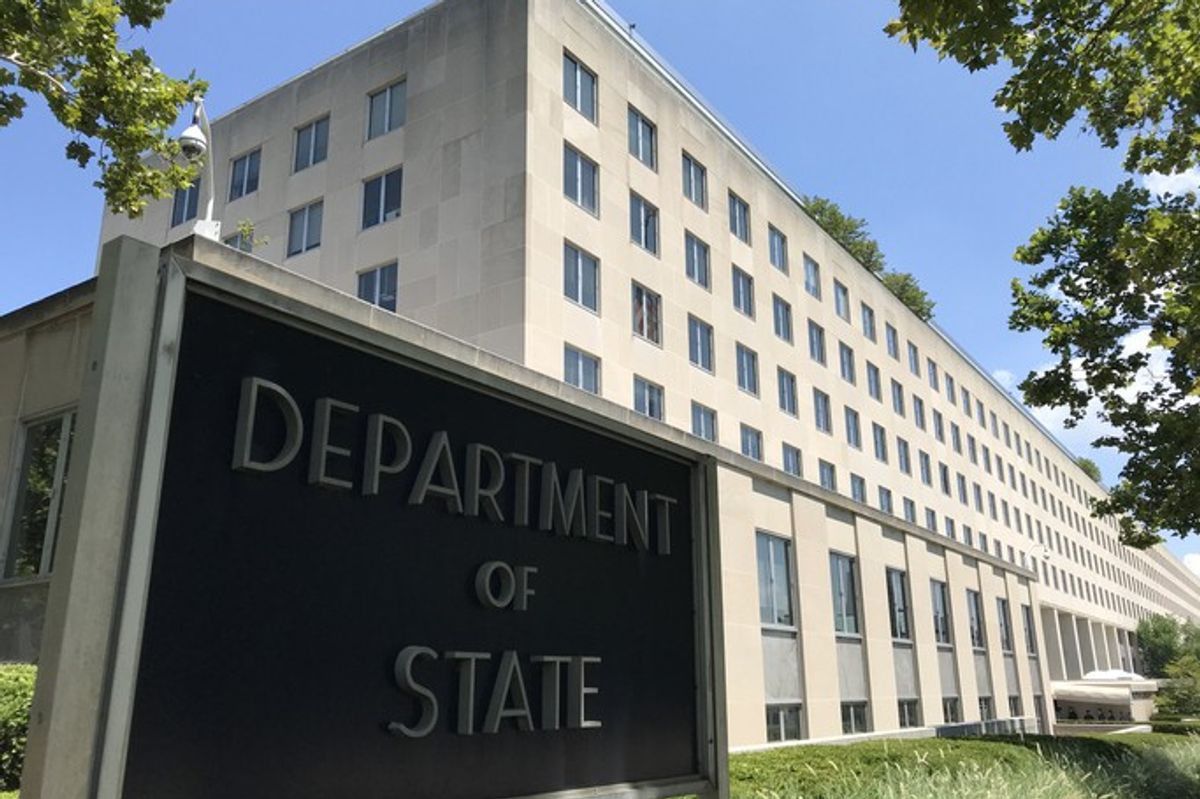Secretary of State Rex Tillerson was on Capitol Hill Tuesday, defending deep cuts to the proposed 2018 State Department budget and explaining how the department is handling expected job losses and slashes to foreign aid.
Tillerson told the Senate Foreign Relations committee the Department’s proposed budget of $37.6 billion, a reduction of close to 30 percent from the 2017 budget, and which includes the State Department, along with the U.S. Agency for International Development (USAID), “aligns with the Administration’s objective of making America’s security our top priority.”
“The first responsibility of government is the security of its own citizens, and we will orient our diplomatic efforts toward fulfilling that commitment,” Tillerson said in his prepared opening remarks.
“This budget request also reflects a commitment to ensure every tax dollar spent is aligned with the Department’s and USAID’s mission-critical objectives. The request focuses the State Department and USAID’s efforts on missions which deliver the greatest value and opportunity of success for the American people.”
However, Tillerson came under criticism from some Senators, who questioned how the Department prioritized its proposed cuts, particularly to human rights, democracy, and governance programs.
“A budget is a statement of values, and the administration has put forth a budget for the State Department that I don’t think shares American values,” Senator Bob Menendez (D-NJ) said.
“As brave citizens continue risking their lives advocating for the basic freedoms we enjoy here, this budget sends a message that the United States is no longer on their side.”
Senator Ben Cardin (D-MD) told Tillerson, “The deep cuts to international affairs spending in your budget proposal is an approach to American foreign policy that is nothing less than a devastating assault on America’s interest and values”.
Tillerson told the committee the entire Department is currently under review, and he plans on implementing a Department-wide “redesign” of its operations towards the end of the calendar year. Personnel cuts are expected.
“I don’t have any number in mind as to what the efficiency will be, whether it is going to be 10 percent, whether it is going to be 25, 30. We are going to let the redesign drive what those efficiencies will be.”
He testified again later Tuesday at a Senate Appropriations committee hearing, stating there would not be any firings of staff in the re-organization.
“We are not going to fire anyone. This is all being done through the hiring freeze, normal attrition, with a very limited, if needed, because we haven’t determined if we are going to need it, a very limited buyout program between the end of this year and next.”
The hearing briefly touched on several key foreign policy issues. Tillerson addressed the widely-reported slow pace of diplomatic nominations. According to the Washington Post, which has been tracking the list of Trump’s executive branch nominations, the State Department has 101 positions still awaiting nominations.
“As I check on the status of various people we have recommended and nominated to the White House, what I am finding is that more often than not, it is the paperwork that is slowing them down”, he said, adding that they have currently identified about 50 percent of names for undersecretary roles.
Tillerson also previewed President Trump’s expected announcement on Friday of a change in U.S. policy towards Cuba. He acknowledged increased commercial and economic activity between the two countries since President Barack Obama restored diplomatic relations in 2016—which he described as the “sunny side” of the relationship, but he emphasized the U.S. still has concerns about Cuba’s human rights record.
“We would love to keep the 'sunny side.' We would love to keep it in compliance with existing statute that doesn’t lead to financial support for what we can only describe continues to be a very oppressive regime,” he said, without getting into specifics as to what policy changes Trump may announce. The President is reportedly looking to tighten restrictions on travel and trade.
Verdi Tzou is a national security web editor at The Cipher Brief.











